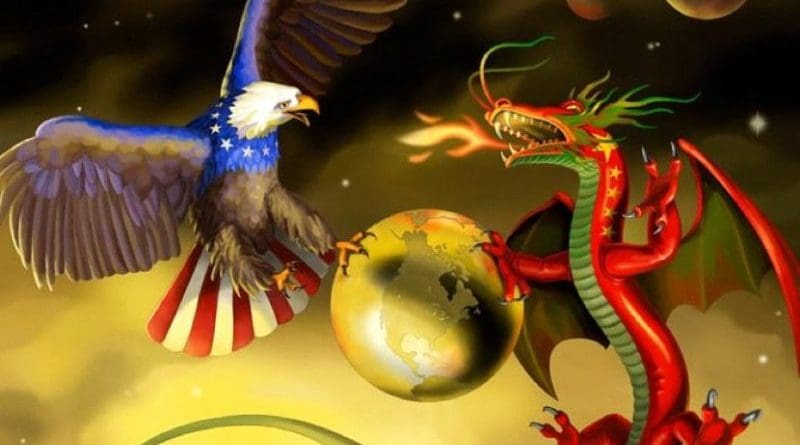Gulf Economies Stand To Lose If Huawei Row Reignites Trade War – OpEd
By Arab News
By Frank Kane*
A global trade war was apparently averted over dinner in Buenos Aires a couple of weeks ago when President Donald Trump and his Chinese counterpart Xi Jinping called a cease-fire in the escalating commercial confrontation between the world’s two biggest economies.
Now that cease-fire has been threatened by the arrest in Canada — on a warrant from the US — of Meng Wanzhou, the chief financial officer of Huawei, China’s flagship technology company.
The US is seeking her extradition for trial on allegations of breaching sanctions against Iran.
It is a serious development in the skirmishing between the US and China, because at stake is much more than the liberty of one executive. If the incident rekindles the trade war, it will seriously hit the global economy and financial markets, which had begun to recover on the strength of the dinner bargain between the two presidents.
Regional economies in the Arabian Gulf would not be immune. The region is locked into the world economy, mainly because of its role in energy markets, which are dependent on the strength of demand from the fast-growing economies of Asia.
A trade war would depress growth there, and make Asian manufacturers less likely to want Gulf oil and gas. Any beneficial effect of the recent OPEC deal to cut output would be at risk.
To be fair, there was some uncertainty about what had actually been agreed at the G20 summit in Buenos Aires anyway. The Americans said they were going to delay increasing tariffs on Chinese imports — largely steel and aluminum — due to be slapped on in January, in return for which China would drop tariffs on US cars and some foodstuffs.
The Chinese did not exactly confirm that version of dinner events, nor did they go along with other suggestions from the Americans that they would institute a radical restructuring of their industrial practices to prevent intellectual property theft and unfair state assistance.
All of this went a lot further than Trump’s central charge — about the imbalance of trade between the two countries. It is unlikely the Chinese would have agreed to such a far-ranging armistice, no matter how good the Argentine steaks.
Anyway, the arrest of Meng could knock all that off the table. Huawei is not just any old company, and Meng is not any old executive. The Shenzhen-based group is China’s equivalent of Apple, a source of national pride and a projection of Chinese technological skill on the global stage.
Meng is the daughter of Ren Zhengfei, the founder of Huawei back in 1987. Currently in a financial role, she is generally assumed to be his heir apparent.
That is why the Chinese reacted so strongly to the arrest, threatening Canada with “serious consequences” if Meng were not released. Her detention was “in disregard of the law, unreasonable, merciless and very evil,” the Chinese foreign ministry said.
It is probably grounds for some optimism on the trade front that so far China is only threatening Canada, rather than Washington, but it is hard to see how the situation will be resolved unless the US backs down in its extradition request.
The Canadians have treaty obligations with the US and it is unlikely they would have arrested her without a formal US request. If Washington withdraws that application, the whole thing might be smoothed over.
But the Americans are surely making a more important point. While Trump has concentrated on trade imbalances — with an annual deficit of $375 billion in China’s favor last year — others in his administration have a more ideological grievance.
They want to take on China’s growing economic power around the world. In this respect, you could see the Huawei case as an opening sighting shot in a much longer struggle between US and Chinese world views.
The affair has already further unnerved financial markets, with Wall Street and others seeing sharp falls last week.
Despite Trump’s tweeted view that “trade wars are easy to win,” no serious economist thinks that there could be any long-term beneficiary from a protracted commercial confrontation between the two super-economies.
The Arabian Gulf economies — caught in the middle with big investments in both countries — stand to lose twice over.
* Frank Kane is an award-winning business journalist based in Dubai. Twitter: @frankkanedubai

